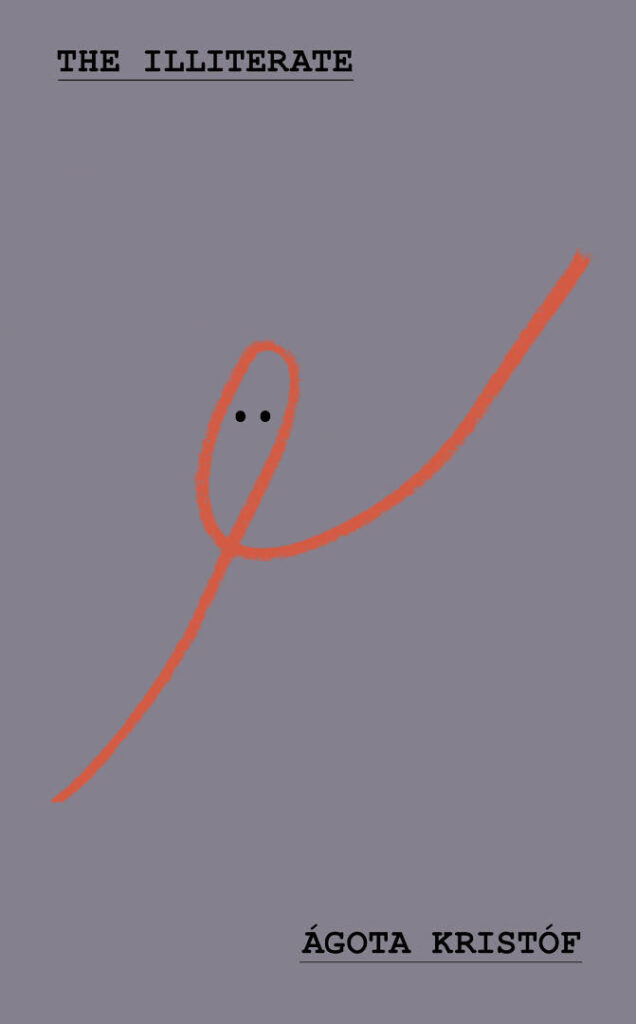The Illiterate by Ágota Kristóf

You may have heard of Ágota Kristóf’s first novel, The Notebook [Le Grand Cahier], which won the 2008 European literary award and even garnered public praise from rock star philosopher Žižek – but what about her memoir, The Illiterate? Originally published in French as L’analphabète in 2004, The Illiterate is now available in English, translated by Nina Bogin and published by New Directions. Through eleven concise chapters (each roughly 2-3 pages in length), Kristóf recounts the rupture between spoken and written language; reading and writing; and literacy and illiteracy. Free of superfluous descriptors, she doesn’t linger on a single memory for too long. Those looking for a chronological biography tracing her trajectory from Hungary to Switzerland will instead find a collection of activated memory fragments. Her departure from Stalinist Hungary in 1956 is triggered, for example, when she learns of a Turkish child’s failure to cross the Swiss border. While relocating the memory of her forced departure from Hungary to Austria, along with her four-year old daughter and husband, she confides in the reader her trauma as a French illiterate. Kristóf’s success as a writer in French continues to haunt her: She compares the French language to German and Russian – the “enemy language” that threatens her sense of belonging and cultural identity. “[French] is killing my mother tongue,” she writes. The Illiterate is a beautifully concise memoir that makes us think about the role of language (learned, unlearned, and borrowed), and especially about English as the hegemonic language of world literature in translation.
The Illiterate, Ágota Kristóf, Ed. New Directions
Click here to purchase the book with us


